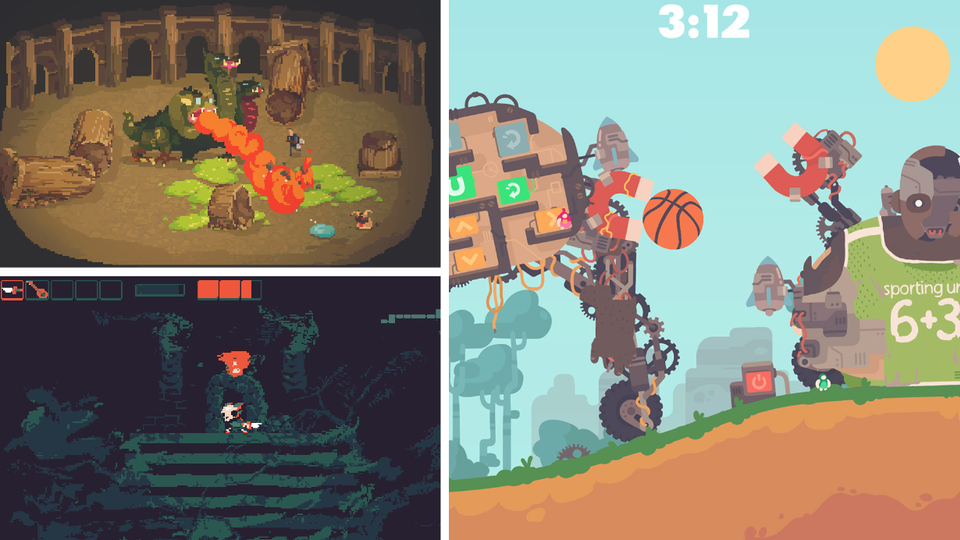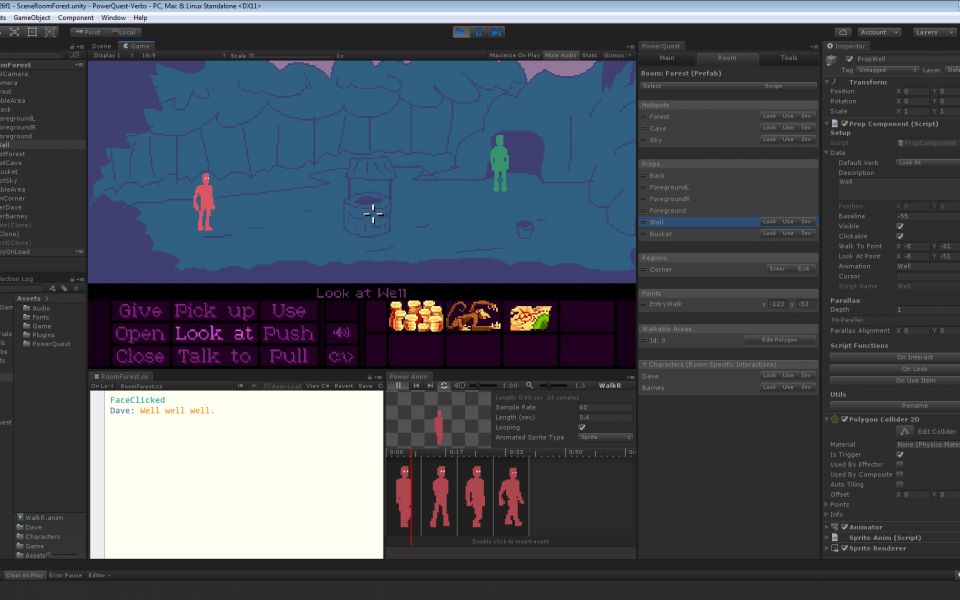PowerQuest – p.1 – User Article
teasers
The Adventure Game Studio is one of the most well-known tools for the implementation of point-and-click adventures. A former AGS user is working relatively unnoticed on a modern alternative.
You may know the indie studio Powerhoof from the appropriately named multiplayer dungeon crawler crawl from 2017. Or from the wacky multiplayer fun Regular human basketball, which was launched a year later. Or maybe from the 2D action-adventure Acid Knifewhich is due to be released later this year.
In addition to this colorful bouquet of indie titles, Powerhoof above all has a large portion of love for point-and-click adventures to offer, which among other things The Drifterthe heart project of developer and studio co-founder Dave Lloyd, should still prove in the course of the year. But this is by no means Lloyd’s first adventure. Because many years before the release of his adventure tools PowerQuest the foundation stone was laid. I would like to introduce you to this modern alternative to the Adventure Game Studio in more detail in this article. But first it should go to the beginnings of the studio.
 |
| Top Left: Crawl, Bottom Left: Acid Knife, Right: Regular Human Basketball. |
The beginnings until the founding of Powerhoof
Australian Dave Lloyd is a typical old-school adventure lover. Having grown up with the usual suspects from the two largest graphics adventure developers LucasArts and Sierra (to the user rumble), the desire grew in him to create adventures himself, and so he came to Adventure Game Studio in the early 2000s. In the AGS community he quickly became known as Duzz known and was quite active there for a number of years.
Under the name of Wintermute Studios (which he considers a little embarrassing now but found super cool at the time) he released a handful of AGS adventures that were quite respectable – especially considering that these were his first forays into adventure development were. If you want to get an impression of his early work, you should check out The Unicated from the year 2011.
Around the mid-2000s, Lloyd managed to break into the gaming industry and then worked for EA at Firemonkeys Studios for a while. At work he met Barney Cumming, who quickly went from colleague to good friend. Most recently, the two worked mainly on mobile titles like The Sims – Freeplay or Mass Effect Infiltratorwhich ultimately did not satisfy the friends.
The desire for creative freedom grew until Lloyd and Cumming decided in 2013 to quit their jobs at EA and found a new indie studio together in Melbourne. They agreed on Powerhoof as the name and immediately defined the hoof as a logo. The distribution of roles was clear from the start: Lloyd took on the role of programmer and Cumming that of artist. The Wintermute Studios label was history, but the adventure genre should continue to accompany Lloyd in the future.
 |
| The first games under the Wintermute Studios label were still created with AGS. |
First steps and the birth of PowerQuest
Even though both new entrepreneurs had saved up a little capital for founding the company, they naturally had to earn money as quickly as possible. As a development environment you chose unity, which gave them the ability to program their games for multiple platforms at the same time. The first project was Crawl, which they announced in 2013 and brought to Steam Early Access in 2014. Thus, the first cash flow was secured. The full version was then to appear three years later for Linux, MacOS, PC, Playstation 4, Xbox One and Switch.
In the nine years that the studio has been in existence, two things have become clear: both had a penchant for game jams and (especially Lloyd) still liked point-and-click adventures. In 2017 it was time for Lloyd to create an adventure again. However, he hadn’t been using AGS for a long time and Unity wasn’t exactly specialized in 2D point-and-clicks. So Lloyd had to improvise and create his own tools. Since he had already gained some experience with AGS, he wanted its comparatively simple operation back. His own adventure tools should take the strengths of AGS and combine them with the modern and powerful Unity engine.
Along with the new tools came into being Murdercide 2017, which is probably the first very short but fully-fledged adventure that was created with PowerQuest – although the name PowerQuest was probably not yet known at the time. Entries for the Adventure Jams 2017 and 2018 followed, among other things, and his adventure tools grew along with him. Then in 2019, Lloyd got to the point where he wanted to share PowerQuest with the world. And he thought back to his beginnings and shared with his friends from the AGS community.
If you are interested in the technical details of PowerQuest, I recommend this Introductory video, which Lloyd created for this purpose. You can also try the tool yourself, it is currently still available free on itch.io available. In the future, however, it could possibly only be available for a fee via the Unity Store.
But let’s get down to the basics: On the next page, I’ll introduce you to some of the games that were created with PowerQuest.
 |
| PowerQuest embeds directly into Unity. |
Reference-www.gamersglobal.de